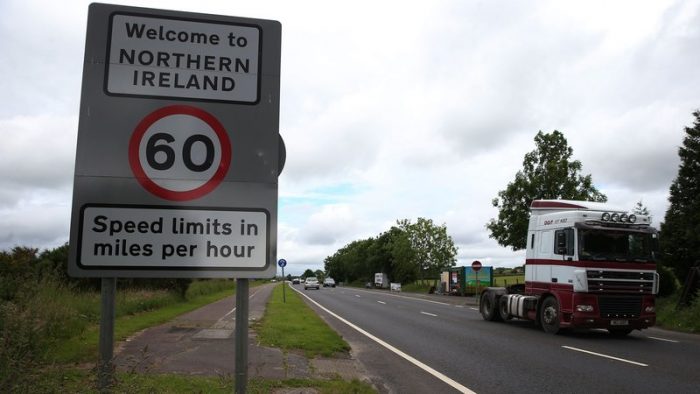 EU officials have poured cold water on alternative proposals for the Brexit backstop by a former British European Commission official.
EU officials have poured cold water on alternative proposals for the Brexit backstop by a former British European Commission official.
Sir Jonathan Faull had suggested the EU and UK could maintain their own customs and regulatory regimes while using their laws to protect each others’ markets.
He also proposed creating “trade centres” away from the Irish border.
This would mean goods would not have to be checked at the frontier.
But EU sources are reported to have found his proposals as “inadequate and not anywhere near the landing zone”.
Speaking on the BBC’s Today programme, Sir Jonathan said: “The idea is that whatever controls are necessary are done away from the border, leaving the border free and open.”
The backstop is a position of last resort to prevent the hardening of the Irish border in the absence of other solutions.
It would see Northern Ireland staying aligned to some rules of the EU single market and the whole of the UK, forming a “temporary single customs territory” with the EU.
The British Prime Minister Boris Johnson says the backstop cannot form part of any Brexit deal.
At the centre of the Faull plan is the concept of “dual autonomy” – meaning the EU and UK would maintain their own customs and regulatory regimes but use their laws to protect each others’ markets.
The paper states: “Under this proposal it will be a violation of UK law backed up by severe penalties knowingly to export, through the frontier between the North and the Republic, goods which do not comply with the regulatory standards of the EU.”
In effect, UK public law would be backing not only the regulatory standards for goods on the UK market, but also goods destined for export to the EU through the frontier with the Republic.
The paper also suggests the establishment of “trade centres” in the UK and Northern Ireland, where goods destined for the EU would be subject to customs clearance and regulatory checks.
But that would seem to fall well short of the Irish government’s position that any solution must not introduce new checks on the island of Ireland – even away from the border.
It points to the 2017 Joint Report of the EU and UK, a interim deal, in which there was a commitment to avoid a hard border, “including any physical infrastructure or related checks and controls”.
Speaking to the BBC, John McGrane from the British Irish Chamber of Commerce suggested the paper did not fully address the issue of EU law on food standards.
Strict EU rules stipulate that food products entering from a non-member state must be subject to checks at the point of entry into the EU.
Mr McGrane said: “This is not like different VAT rates, animals and animal products have to be checked at the point of import, it’s a matter of human health protection.”
Tags:




